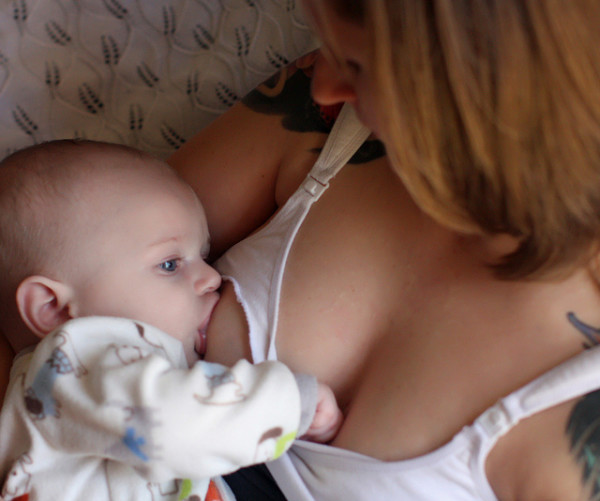Breastfeeding is often touted as the best thing a mother can do for her baby. Studies have reported a wide range of benefits, including reducing an infant’s risk of disease and infection. While mounting evidence seems to indicate, as the saying goes, that “breast is best”, the majority of research fails to consider critical differences between babies who are breastfeed and those who are not.
Women who bottle-feed their children are more likely to be socially disadvantaged, less educated, have lower incomes, and/or have lower IQs than those who breastfeed. Without controlling for the effects of these factors, it is impossible to determine which variables actually impact infant health. Creative scientists are untangling this issue by utilizing within-family designs in which two siblings, one who was breastfed and one who wasn’t, are compared using characteristics ranging from body weight to grade point average.
Image Source: Insung Jeon
The result? From incidence of obesity, hyperactivity, and asthma, to measurements of parental attachment, depression, and intelligence, within-family studies reveal almost no significant differences between breastfed and bottle-fed siblings. In terms of tangible benefits, it seems that many of the miraculous claims about breast milk are a product of poorly designed experiments and misinterpreted effects.
This is not to say, of course, that there is anything wrong with breastfeeding. Despite mild concerns about the levels of environmental toxins in breast milk, it remains a very safe and nutritious source of food for babies. Additionally, many mothers enjoy nursing for the sense of comfort and connection it may provide. It is also important to note that the studies mentioned above only examine mothers living in the industrialized world. For many women in developing countries, especially where infants face greater risks of illness and malnutrition, breastfeeding may be the best (or only) option.
For women with alternatives, however, breastfeeding should be considered as one of many ways in which mothers may choose to nourish their babies. In light of the previously mentioned finding that many American women who don’t breastfeed may be economically disadvantaged, as well as the limited social and workplace support nursing mothers receive in the United States, it is imperative to dispel the misinformation and guilt surrounding the choice to bottle-feed. As within-family studies have shown, breastfeeding does not appear to significantly improve infant health. Therefore, a woman’s decision to breast or bottle-feed should rely on which alternative best fits with her financial, professional, and social situation. Breast can be best, but only if it is sensible for the mother and infant.
Featured Image Source: NOP PHOTO










